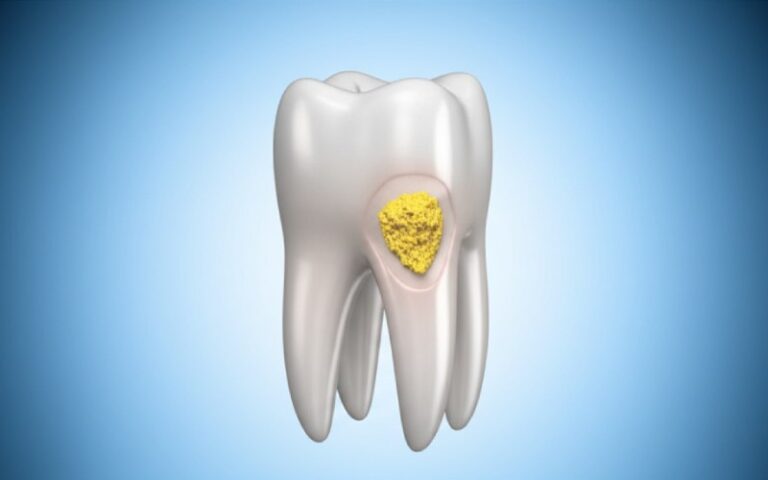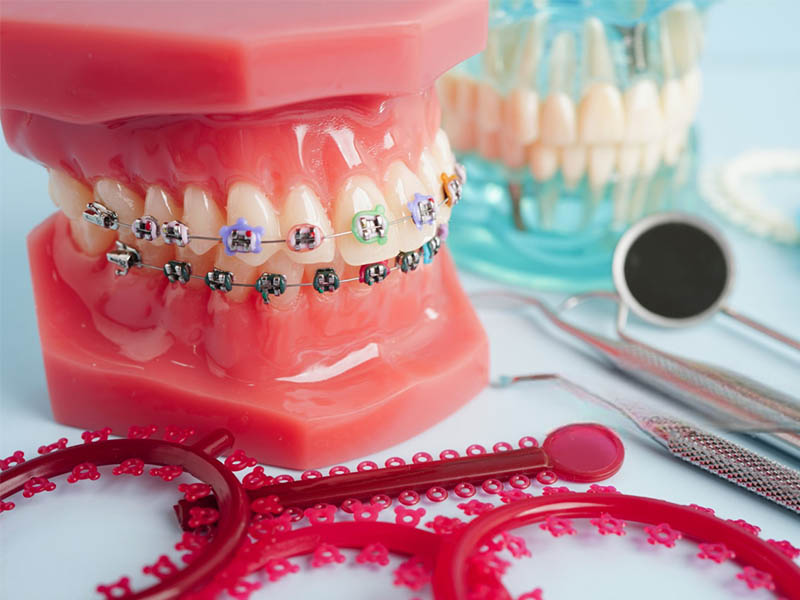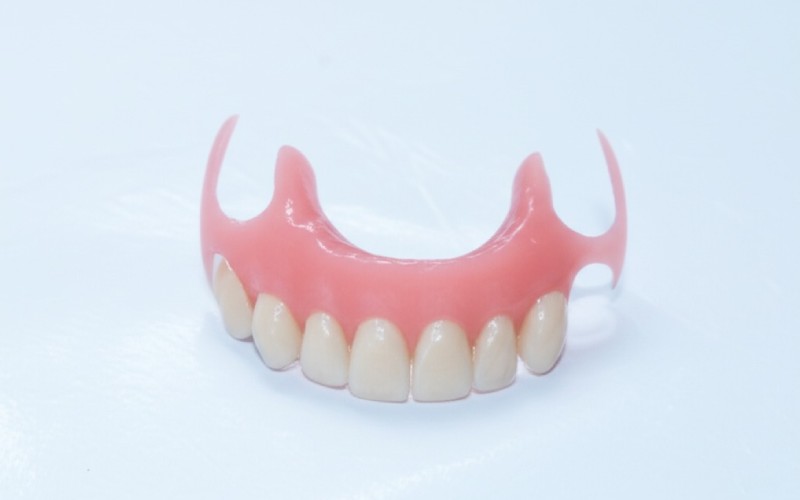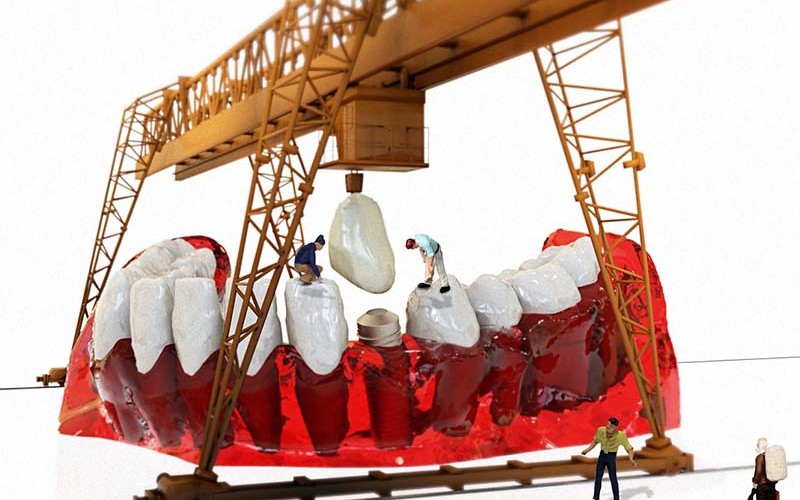
How Much Do Dental Implants Cost? A Clear Look at Dental Implant Costs
You work hard for your money, and you want to know what you’re getting into. The honest answer is that the cost can vary a lot. This article will give you a clear, simple overview of the cost of a dental implant. We will break down every part of the pricing. By the end, you will understand what you are paying for and why a dental implant is a worthwhile investment in your smile.
Table of Contents
What Is a Dental Implant and How Does It Work?
A dental implant is the best way modern dentistry has to replace a missing tooth. Think of it as an artificial tooth root. It’s a small, strong post, usually made of titanium. A dentist places this post into your jawbone where your missing tooth used to be. This post acts just like a natural root. It holds your new tooth securely in place.
Once the dental implant is in your jaw and has had time to heal, it becomes a sturdy base. The bone grows around the implant, a process that makes it very strong. On top of this post, your dentist will place a connector called an abutment. And on top of the abutment, they will place a beautiful, new implant crown. This crown is the part that looks like a tooth. It is made to match your other natural teeth. The final result is a strong, stable tooth that looks and feels like your own.
This whole setup is designed to be a long-term solution. Unlike a denture, it does not slip or click. Unlike a bridge, it does not rely on the teeth next to it for support. A dental implant stands on its own, strong in your jawbone. It helps you chew, talk, and smile with confidence again. It is a fantastic treatment option to restore your smile.

What Is the Average Cost for a Dental Implant?
Now for the big question about the cost of dental implants. I know you want a simple number, but the cost of a single dental implant can range from $3,000 to $6,000. That’s a big range. This price usually includes the implant procedure for the post, the abutment, and the final crown. The overall cost depends on your specific needs. No two mouths are the same, so no two implant costs are the same.
Think of it like building a house. You can’t get one single price for “a house.” The cost depends on the size, the materials, and the land you build on. A dental implant is similar. The cost for a dental implant is based on your unique specific situation. Some people may need extra work done before the placement of the dental implant.
The key is to not get scared by the numbers. It’s important to understand that this cost covers a highly technical surgical procedure and high-quality materials that will last for decades. We will break down why this cost can change so you can feel more in control. Remember, a cheap dental implant is not always a good dental implant. Quality matters when it comes to your health and your smile.
What Parts Make Up the Total Cost of the Implant?
When you get a bill for a dental implant, you are paying for three main parts. Understanding this helps you see where your money is going. The first part is the dental implant itself. This is the titanium screw that goes into your bone. This is the foundation. The material is very important because it has to be strong and safe for your body.
The second part is the abutment. The abutment is a small connector piece. It sits on top of the dental implant and below the crown. It’s like a bridge between the implant in your bone and the tooth everyone sees. An abutment must fit perfectly to make sure your new tooth is stable and comfortable. The cost of the abutment is a key part of the total price.
The third part is the implant crown. This is the artificial tooth that is attached to the abutment. This is the part that has to look good and work well for chewing. The cost of the crown can change based on the material used. All three parts—the dental implant, the abutment, and the crown—are needed for a complete tooth replacement. The total cost reflects the quality and craftsmanship of each piece.
What Other Procedures Affect the Cost of My Dental Implant?
Sometimes, a patient needs more than just the basic dental implant procedure. These additional procedures will add to the total cost. For example, if the tooth is still in your mouth but is damaged, it will need to be removed. A tooth extraction is a separate procedure with its own cost. Your dentist must remove the old tooth before a new dental implant can be placed.
Another common issue is bone loss. If a tooth has been missing for a long time, the jawbone in that area can shrink. A dental implant needs a certain amount of healthy bone to be secure. If you don’t have enough bone, you may need a bone graft. A bone graft is a procedure where new bone material is added to your jaw to make it stronger. This grafting process adds to the cost and the time it takes to get your dental implant.
For patients with dental anxiety, there are options like IV sedation. This helps you relax during the implant procedure. IV sedation makes the experience much more comfortable but does add to the final cost. These are all things your dentist will talk to you about during your first consultation. They will look at your mouth, your gum tissue, and your bone structure to see what you need.
Why Does the Cost Change from Dentist to Dentist?
You might notice that the cost of a dental implant can be different at different dental offices. There are a few good reasons for this. One of the biggest factors that can affect the cost is the experience and training of the dentist. A specialist who has done thousands of dental implant placements may charge more than a general dentist who only does a few each year. You are paying for their skill, which can lower the risk of problems like implant failure.
The location of the dentistry practice also matters. A dentist in a big city with high rent will likely have higher prices than a dentist in a small town. The technology they use also affects the price. Modern offices with 3D imaging and guided surgery tools may have a higher cost, but this technology can make the procedure safer and more precise.
It’s important to find a dentist you trust. Don’t just shop for the lowest price. Look for someone who has a lot of experience with dental implants. Ask to see before-and-after photos. Getting quality dental care is very important for the success of your dental implant. A good dentist will make sure the implant procedure is done right.
How Can an Implant Crown Change the Final Price?
The final part that goes on your dental implant is the crown, and its material can change the cost. Think of the crown as the visible part of your new tooth. You want it to be durable and look natural. The most common materials are porcelain and zirconia. A porcelain-fused-to-metal crown is strong and looks good, and is often a lower-cost option.
However, many patients now choose an all-zirconia implant crown. Zirconia is a very strong, tooth-colored material. It looks very natural and is great for people who might grind their teeth. Because it is a premium material, it will increase the cost. This is a cosmetic choice as much as it is a functional one. You and your dentist can discuss which material is best for your specific tooth.
The way the crown is made also affects the cost. A custom crown made in a high-tech lab will cost more than a standard one. The goal is for the restoration to blend in perfectly with your natural teeth. The final cost of the dental implant will reflect the quality of this final, visible part of your new smile. Your first appointment should cover these choices.
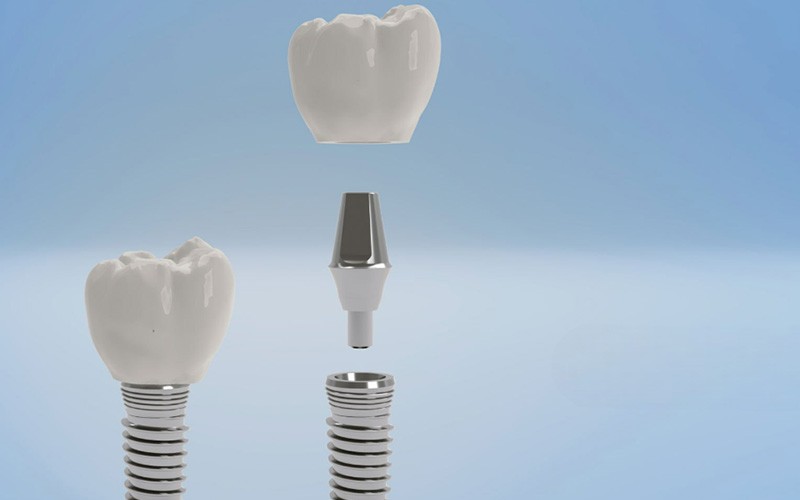
Will My Insurance Help Pay for My Implant Costs?
This is a big question for many patients. The answer is: maybe. In the past, most dental insurance plans did not cover dental implants. They saw it as a cosmetic procedure. But things are changing. More insurance companies are starting to see that a dental implant is often the best long-term choice for a missing tooth.
Your insurance plan might cover a part of the cost. Some plans might pay for the crown part of the dental implant, but not the surgical placement. Others might give you an allowance for tooth replacement that you can use for a dental implant, a bridge, or a denture. It is very important to talk to your insurance provider directly. Get a clear answer from them in writing before you start treatment.
Do not assume your dental insurance will cover the full cost. Most of the time, it will not. However, any help from your insurance can lower your out-of-pocket cost. Your dentist’s office can often help you by sending a pre-treatment estimate to your insurance company. This will tell you exactly what your insurance plan will pay.
What if I Need to Replace More Than One Tooth?
If you have several missing teeth, the cost structure changes. You might not need one dental implant for every single missing tooth. For example, if you have three missing teeth in a row, your dentist might use two dental implants to support a three-unit bridge. This can be less expensive than getting three separate dental implants.
For people missing all of their teeth, an implant-supported denture is a great option. Instead of a traditional denture that can feel loose, this type of denture snaps onto a few dental implants placed in your jaw. This makes the denture very stable. You can eat and speak without worrying about it moving. The cost for multiple implants to support a bridge or a full denture will be higher than for a single dental implant, but it is often more affordable than replacing every tooth with an individual implant.
The total cost will depend on the number of teeth you need to restore and the type of solution you choose. Whether you need a partial or full restoration, using dental implants as a base provides the best stability. Your dentist will create a treatment plan just for you. This plan will outline the procedure and the total cost.
Are There Ways to Finance My Dental Implant?
Yes, absolutely. Implants are expensive, and most people cannot pay the full cost all at once. Almost every dentistry office understands this. That’s why they offer ways to help you finance your treatment. Good dental care should be within reach. Don’t let the initial cost stop you from exploring this option.
Many dental offices offer in-house payment plans. This allows you to spread the cost of the dental implant procedure over several months. Ask the office manager about their payment options during your consultation. There are often no-interest plans if you can pay the full amount within a certain time. This makes the payment much easier to handle.
Another popular choice is to work with a third party financing company that specializes in healthcare. Companies like CareCredit or LendingClub offer loans specifically for medical and dental procedures. You can apply for these financing options right in your dentist’s office. They often have low-interest and long-term plans. This allows you to get the dental implant you need now and pay for it over time.
Is the High Cost of a Dental Implant a Good Long-Term Choice?
When you look at the initial cost, a dental implant seems expensive. A bridge or a partial denture may have a lower price tag at first. But think about the long-term value. A dental implant is designed to be a permanent solution. With good care, it can last for decades, even a lifetime. It is a one-time investment.
Now think about dentures or bridges. A bridge may need to be replaced every 10 to 15 years. A denture will need to be adjusted or replaced as your jaw changes. The costs of replacing these other options over your lifetime can add up. They may be a better choice for some, but a dental implant often has a lower total cost over the long run.
A dental implant also protects your health. It prevents bone loss in your jaw and keeps your other teeth from shifting. It allows you to eat any food you want. You can’t put a price on that quality of life. For these reasons, I believe a dental implant is a very smart and worthwhile investment in your health and happiness.



